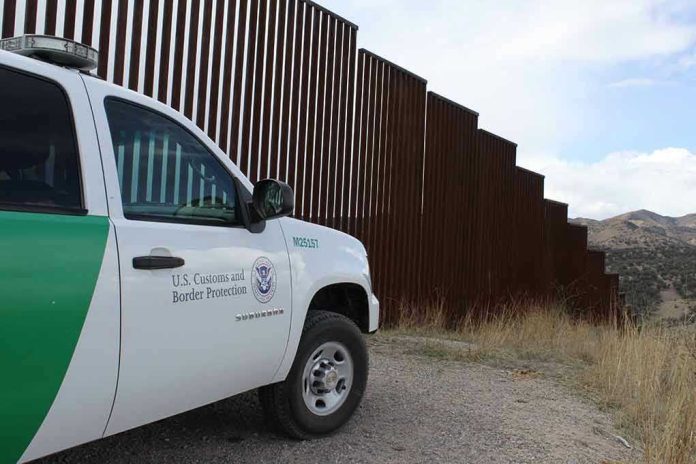
President Trump’s sweeping 2025 immigration overhaul delivers on border security promises, but some warn that expanded enforcement powers and mass detention threaten American liberties and family values.
Story Snapshot
- Trump’s administration enacts the largest immigration enforcement expansion in U.S. history, deploying military and quadrupling detention funding.
- New laws empower state and local police to act as federal immigration agents, raising constitutional and due process concerns.
- Expedited removal policies now allow deportations across the nation, including sensitive locations like schools and hospitals.
- Millions of immigrants face loss of protections, access to relief programs, and basic benefits under the One Big Beautiful Bill Act.
Trump Administration’s Landmark Immigration Crackdown
In 2025, President Trump’s second administration swiftly enacted a string of executive orders and legislative reforms targeting illegal immigration and border security. The administration’s actions include deploying military personnel to “seal the border,” expanding expedited removal procedures, and pressuring states and localities to cooperate in immigration enforcement.
These measures mark the most aggressive immigration policy shift in modern U.S. history, matching campaign promises to restore national sovereignty and public safety.
The new policies also enable nationwide raids by Immigration and Customs Enforcement (ICE), including in traditionally off-limits areas such as schools, hospitals, and places of worship. The administration terminated previous humanitarian programs and streamlined deportation processes, arguing these steps are essential to protect American jobs and uphold the rule of law.
Critics, however, warn these actions erode due process and risk harming children and families, igniting fierce debate over the balance between security and constitutional rights.
Military Involvement and Local Law Enforcement Expansion
President Trump’s executive orders call for the U.S. armed forces to assist in securing the border and detaining migrants, with military flights and facilities such as Guantánamo Bay now used for deportation and detention.
State and local police have been deputized to act as federal immigration agents under expanded programs, incentivizing their participation through federal funding and threatening to cut support to “sanctuary” jurisdictions.
These steps are justified as necessary to counteract what is described as an “invasion,” but raise questions among constitutional conservatives about the proper limits of executive power and the risk of federal overreach into local authority.
Federal agencies received a record $170 billion funding boost for enforcement, detention, and deportation under the One Big Beautiful Bill Act. This includes $45 billion immediately allocated to expand immigration detention—quadrupling ICE’s budget—and $32 billion for enforcement operations.
The law introduces new fees for asylum seekers and penalties for unauthorized border crossings, aiming to deter illegal entry but also raising concerns about access to due process and humanitarian protections.
Impact on Families, Benefits, and Constitutional Concerns
The administration’s policies cut off many lawfully present immigrants from health insurance, nutrition aid, and anti-poverty benefits such as the Child Tax Credit. Protections for Dreamers, refugees, and those with Temporary Protected Status (TPS) are being rescinded, leaving millions facing deportation or loss of work authorization.
The law’s expansion of expedited removal allows for rapid deportations nationwide, sometimes without a court hearing, which some legal experts argue undermines the constitutional guarantee of due process for all persons within the United States.
While supporters praise these actions as a long-overdue correction to years of lax enforcement and globalist overreach, others point to the risk of separating families and destabilizing communities.
The focus on enforcement, detention, and deportation aligns with conservative priorities of law and order, but the scope and speed of the changes have led even some on the right to urge caution to safeguard constitutional principles and American family values.
Limited data is available regarding the long-term effects of these policies on local communities and the broader economy. Key insights from initial enforcement actions reveal both the administration’s determination to deliver on border promises and the growing debate over the right balance between security and liberty in America’s immigration system.
Sources:
The Trump Administration’s 2025 Changes to Immigration Law
Project 2025: What’s At Stake for Immigrants’ Rights
Ten Harmful Trump Administration Immigration and Refugee Policies
The Anti-Immigrant Policies in Trump’s Final “Big Beautiful Bill” Explained
Protecting The American People Against Invasion – The White House







